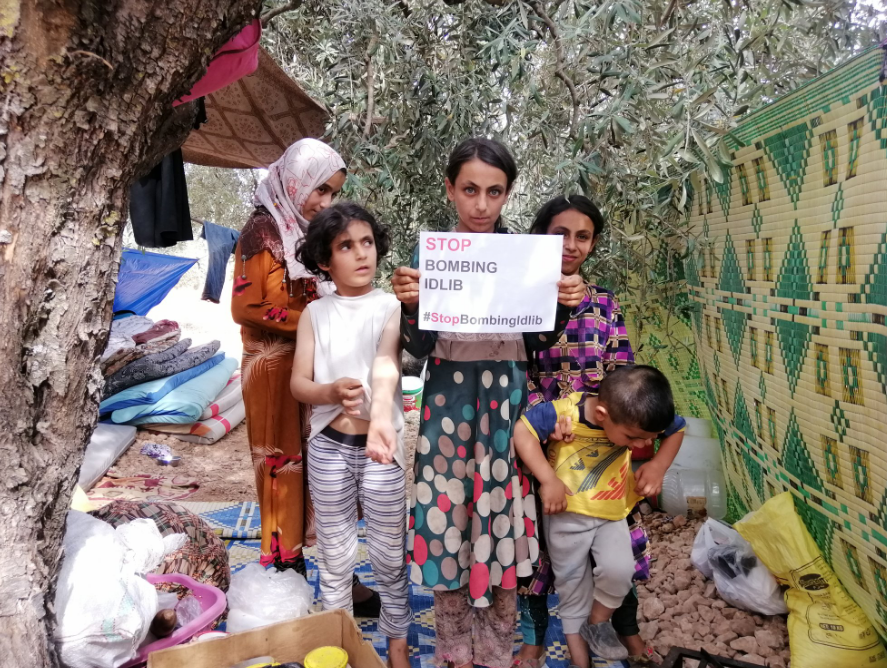The war in Syria is not over. As the attacks on the province of Idlib intensify, we at PAX want to break the silence and tell the world what is happening there. Read these five points to brush up on Idlib, then click on the links below to make yourself heard.
1. Where is Idlib and who lives there?
Idlib is a governorate in north-western Syria, bordering Turkey. Before the war, about 1.5 million people lived there. During the war, another 1.5 million people have been forced to move there from elsewhere in Syria. Many of them were put on buses after surviving years of siege and horrible, months-long attacks on their homes in Aleppo, Eastern Ghouta, Homs and elsewhere.
2. Why is Idlib in the news?
The Syrian and Russian militaries are attacking Idlib governorate in a final push to gain control over the last area under control of opposition forces. They are using the same tactics they have used throughout the war: surrender or die.This means bombing civilian targets, and targeting the civilian population, as a way of forcing armed groups to surrender. The major difference is that this time, they won’t be able to load people onto buses and force them to move to another governorate, as there is nowhere left to go. It is not clear what the Assad regime intends to do with the people in Idlib.
3. How are civilians affected?
The province is densely populated. Those forced to move into the governorate have put a strain on resources, and many were in need of aid even before this last assault began. Now under attack, civilian casualties are thought to be high, although reliable figures are hard to come by. Hospitals, schools and markets come under regular attack, so no one feels safe. The type of bombs being used kill large numbers of civilians. For this reason, many of these munitions are illegal under international law, at least in the manner they are being used. These munitions include phosphorus bombs, cluster bombs, barrel bombs and chemical weapons.
There has been a massive displacement of people from southern Idlib and norther Hama (the neighbouring governorate). The UNHCR reported that 270,000 people were displaced during the first three weeks of May. Most of the displaced are heading toward Dana, on the Turkish border. The World Food Programme reached 200,000 people with emergency food aid during the month of May, and are targeting 823,000 people for food assistance for the month of June. Adding to the food scarcity, the Syrian and Russian militaries are setting agricultural land in the governorate on fire.
4. Who controls the province?
Various armed groups have been fighting one another for control of Idlib, and different parts of the governorate are controlled by different militias. The UN estimates that 30,000 fighters are active in the governorate (about one percent of the total population). Some of the armed groups are made up of people opposed to the Assad regime and have been part of the seven-year-old uprising. Others are Islamist. The Jihadist group Hay’at Tahrir al-Sham, or HTS, is the dominant group in the governorate since it expanded its influence over the past year. However, the Syrian and Russian armies are not bombing the jihadist groups. Rather, they are targeting civilians and revolutionary strongholds that are known for their civic activism such as Kafranbel, the town with the famous Friday slogans.
5. What happens next?
A war is being conducted against a civilian population, and the crisis is getting worse by the day. Three million people are in need of protection. Schools, hospitals and other civilian infrastructure have been destroyed or damaged and access to basic services is further deteriorating. Hundreds of thousands of people are at the Turkish border or moving in that direction. Turkey does not want to let any of them enter its territory. The Assad regime has nowhere else to send militants or civilians who oppose the regime, even in the event they do surrender.
Be part of the #stopbombingIdlib campaign
on Twitter or on Facebook




